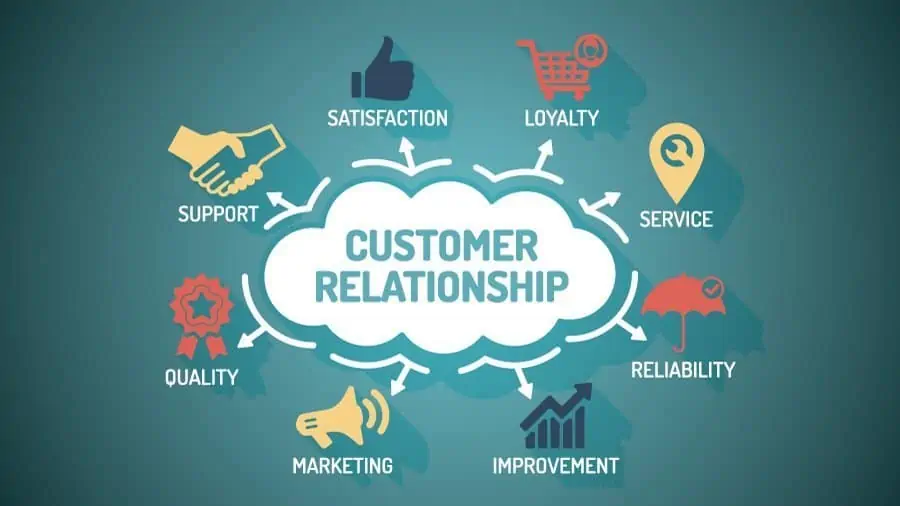The Role Of CRM In Increasing Customer Loyalty: Unlocking Long-Term Relationships
The Role of CRM in Increasing Customer Loyalty: Unlocking Long-Term Relationships

In today's competitive business landscape, building strong and lasting relationships with customers is crucial for success. One key strategy that has revolutionized the way companies interact with their customers is Customer Relationship Management (CRM). The Role of CRM in Increasing Customer Loyalty is multifaceted, and it has become an essential tool for businesses seeking to retain existing customers and attract new ones. In this article, we will explore the various ways in which CRM contributes to fostering customer loyalty and examine the benefits of implementing a robust CRM system in your organization.
Understanding the Concept of Customer Loyalty
Before we dive into the role of CRM in increasing customer loyalty, let's first understand what customer loyalty means. Customer loyalty refers to the long-term commitment and relationship between a customer and a business. Loyal customers are repeat buyers who consistently choose a particular brand or product over others. They also tend to recommend their preferred brand to friends, family, and social networks. In essence, loyal customers are the lifeblood of any successful business, providing a steady stream of revenue and helping to spread positive word-of-mouth.
The Role of CRM in Understanding Customer Behavior
To build lasting relationships with customers, businesses need to have a deep understanding of their needs, preferences, and behaviors. This is where CRM comes in – by collecting and analyzing customer data, CRM systems enable companies to gain valuable insights into customer behavior and tailor their marketing strategies accordingly. CRM software gathers data from various sources, including:
-
- Sales interactions and transactions
- Customer feedback and surveys
- Social media and online activity
- Email and phone communications

- Customer service requests and support tickets
By analyzing this data, businesses can identify patterns and trends in customer behavior, which can inform product development, marketing campaigns, and customer service initiatives.
Segmenting and Targeting Customers
Another key aspect of CRM is segmentation and targeting. By categorizing customers based on demographics, purchasing history, and other criteria, businesses can create targeted marketing campaigns that resonate with specific groups of customers. This approach ensures that marketing efforts are focused and efficient, resulting in higher conversion rates and improved customer satisfaction.

For example, a retail business might use CRM to segment its customers into the following groups:
-
- New customers
- Repeat customers
- High-value customers (those who regularly make large purchases)

- Customers who have shown an interest in specific products or services
Each segment can be targeted with tailored marketing campaigns, such as:
- New customer discounts to encourage repeat business
- Loyalty rewards for repeat customers to retain their business
- Special promotions and offers for high-value customers to keep them engaged
- Product recommendations and advice for customers who have shown an interest in specific products or services
Enhancing Customer Experience
CRM plays a critical role in delivering exceptional customer experiences. By leveraging customer data and insights, businesses can tailor their interactions and communications with customers to meet their unique needs and expectations. This includes:
- Personalized interactions: Addressing customers by name and recognizing their individual preferences and interests.
- Consistent support: Providing seamless customer support across all channels, including phone, email, social media, and in-store interactions.
- Relevant communication: Sending targeted marketing messages and offers that align with customers' interests and needs.
- Optimized processes: Streamlining business processes to minimize wait times and resolve issues efficiently.
By consistently delivering exceptional customer experiences, businesses can build trust, increase satisfaction, and foster loyalty among their customers.
Nurturing Customer Loyalty
Once customers have shown loyalty to a brand, it's essential to nurture and sustain that loyalty. CRM enables businesses to do this by:
- Building loyalty programs: Offering rewards, discounts, and exclusive offers to loyal customers to demonstrate appreciation for their continued loyalty.
- Fostering engagement: Encouraging customers to engage with the brand through social media, email, and in-store events.
- Providing value: Continuing to deliver value to customers through relevant products and services, improved support, and innovative experiences.
- Feedback and analysis: Continuously collecting feedback from customers and analyzing it to identify areas for improvement.
Leveraging Analytics for Strategic Decision-Making
CRM software provides businesses with advanced analytics and reporting capabilities. By analyzing CRM data, companies can:
- Identify trends and patterns: Understanding how customer behavior changes over time and identifying opportunities to improve marketing and customer service efforts.
- Optimize resource allocation: Allocating resources more efficiently, such as investing in marketing campaigns that have a higher ROI.
- Develop predictive models: Predicting customer behavior and making informed decisions about future marketing and customer service initiatives.
- Evaluate performance: Measuring the effectiveness of customer service and marketing efforts and making adjustments to improve results.
Best Practices for Implementing CRM to Increase Customer Loyalty
When implementing CRM to increase customer loyalty, follow these best practices:
- Understand your customers: Take the time to analyze your customer data and understand their needs, preferences, and behaviors.
- Be customer-centric: Focus on delivering exceptional customer experiences that meet their unique needs and expectations.
- Monitor and measure performance: Continuously evaluate the effectiveness of your CRM efforts and make adjustments to improve results.
- Keep CRM data up-to-date: Ensure that your CRM database is regularly updated and easily accessible to avoid inconsistencies and mistakes.
- Collaborate across departments: Foster cross-functional collaboration to ensure that everyone in the organization is aligned and working together to deliver exceptional customer experiences.
Conclusion:
The Role of CRM in Increasing Customer Loyalty is vast and multifaceted. By leveraging CRM software, businesses can gain a deeper understanding of their customers, tailor their marketing efforts, deliver exceptional customer experiences, nurture loyalty, and make strategic decisions. When implemented correctly, CRM can drive long-term relationships with customers, foster loyalty, and ultimately, propel business success. Remember, in today's customer-centric business landscape, building loyalty requires more than just delivering high-quality products and services – it involves fostering meaningful relationships with customers.
Comments
Post a Comment